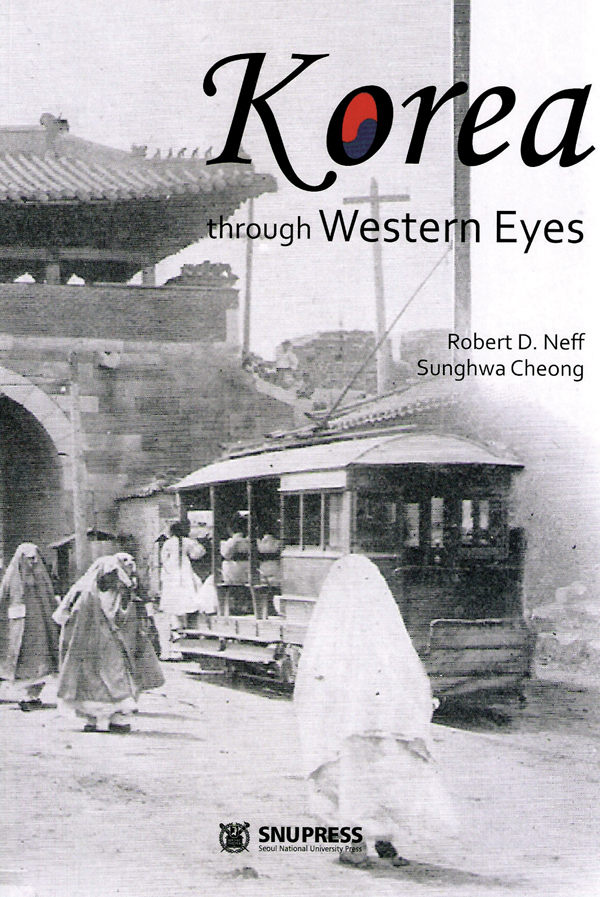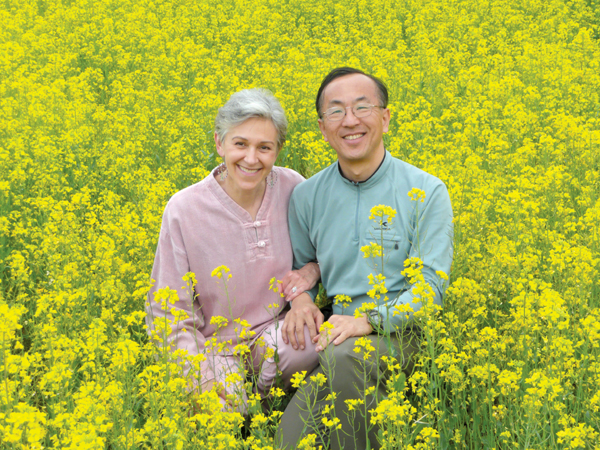 | ||
| ▲ Korea through Western Eyes. Seoul National University Press 25,000won | ||
March 30 (Jeju Weekly) As an amateur student of history, I often find history books a little dry and academic. I have no such quibble with the writing of historical researcher Robert Neff, who writes a history column for this publication and also blogs on The Marmot’s Hole. So I was delighted to receive a review copy of “Korea through Western Eyes,” which Neff co-authored with Cheong Sung Hwa, a professor of history currently serving as dean of the Graduate School of Social Education at Myongji University in Seoul.
I now happily add it to my shortlist of essential reading for anyone seeking to better understand Korea and Koreans, and to Koreans wanting to understand how their past appeared to foreign eyes. (Michael Breen’s “The Koreans” is another tome on the list, so Neff and Cheong are in esteemed company.) And the expats of yesteryear were not so different than those who venture here today - a mix of those seeking to enlighten or improve the native populace, traders, government or military officers, adventurers and rogues. Some, like Paul Georg von Mollendorf, Korea’s first Western advisor, adopted Korean clothing, language and customs, which was considered a betrayal of his native Germany by some. Other foreign visitors to the country viewed Koreans as the “other,” seeing them almost as a species apart. English explorer Isabella Bird Bishop, quoted by the authors, wrote, “The Korean makes upon one the impression of novelty, and while resembling neither the Chinese or the Japanese, he is much better than either, and his physique is far finer than that of the latter.” It seems a narrowly Euro-centric viewpoint, but one reads comments not to dissimilar on any number of Korean-related blogs.
The questions that Koreans asked of their visitors in the past were also similar to those foreigners get today, many of which most Westerners would consider rude. Missionary Lillias Underwood, as quoted from her book, “Fifteen Years Among the Top-Knots,” described an encounter with the palace women, whom she described as “hardened, coarse and vulgar.” “They examined my dress and belonging with childish curiosity, and deluged me with questions as to my age, why I had never married, whether I had children, and why not, and other things equally impertinent and hard to answer.”
It is through the words of those who lived here during the late 19th and early 20th centuries that the reader gains insight not only into life here for the first foreign visitors but gets to know many of the characters and their personalities. One feels for von Mollendorf who lost his position with the Korean government and left the country branded as a traitor and an outlaw. Another character who appears several times is George Foulk, the naval attaché who was in charge of the American legation. His letters to his parents portray a young man living in near poverty and trying to earn funds by dealing in postal stamps and pearls, while criticizing how “extravagant” the missionaries were in Seoul. (In Foulk’s defense, he was not the only one to comment on how well Korea’s missionaries lived, but his letters leave the impression of a petty man.)
Although not the dry prose I dislike from academics, “Korea through Western Eyes” is undoubtedly a scholarly feat, as evidenced in the 12-page bibliography. Although most of the information contained within exists elsewhere, gathering such an extensive collection and presenting it so interestingly was obviously a labor of love. The authors also include dissenting information if sources vary in the details they reported.
On the downside, as an editor I found my eyes drawn to typographical errors and some repetition but, also as an editor, I know perfection is seldom, if ever, attainable. And I can easily overlook such technicalities when a book such as this both holds my attention and teaches me more. For instance, I was previously ignorant of the Baby Riots of 1888, when superstitious Koreans suspected Westerners of killing children and women for medicine or even to eat. Though such suspicions appear unbelievable, the authors note that such rumors were not unique to Korea. Citing George Alexander Lenson, in “Balance of Intrigue,” they report that in 1870 in Tientsin, China, “frenzied Chinese mobs slaughtered a large number of Western missionaries who they believed were making medicine out of the ground up sexual organs of Chinese children mixed with women’s menstrual blood.”
These are only several of many fascinating anecdotes and event in “Korea through Western Eyes.” Accompanied by black and white photographs of the era, many from Neff’s own collection, the book gives a rollicking good read while educating at the same time. For all those interested in Korea, it is available through the Seoul Selection Web site.




